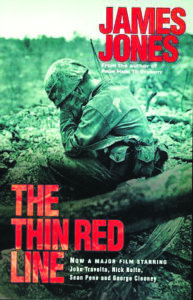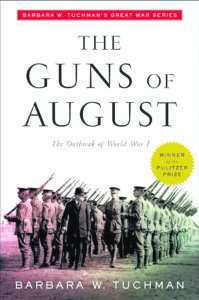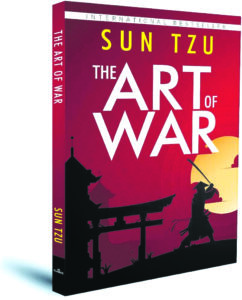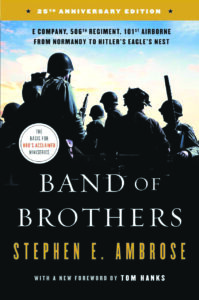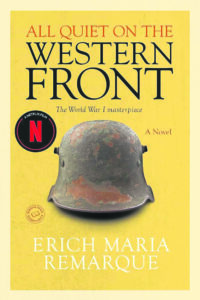There are numerous books that delve into various aspects of the army, from historical accounts to strategy, leadership, and personal experiences. Here are a few recommendations across different categories:
The Art of War” by Sun Tzu (5th Century BCE)
Sun Tzu’s ancient Chinese treatise, “The Art of War,” transcends its historical context, offering profound insights into strategy, tactics, and leadership. This timeless classic explores the philosophy of warfare, emphasizing the importance of knowing oneself and the enemy. Sun Tzu’s strategic principles have found applications beyond the battlefield, influencing fields such as business, politics, and sports. With its concise and strategic wisdom, “The Art of War” continues to be a foundational text for understanding the nature of conflict.
A Farewell to Arms” by Ernest Hemingway (1929)
Set against the backdrop of World War I, Hemingway’s “A Farewell to Arms” is a powerful exploration of love and loss during times of conflict. The novel follows the experiences of an American ambulance driver in the Italian army and a British nurse. Hemingway’s spare and economical prose captures the emotional complexities of war, the disillusionment of the “Lost Generation,” and the impact of violence on human relationships. “A Farewell to Arms” remains a classic of 20th-century literature, celebrated for its poignant depiction of the human condition.
The Diary of Anne Frank” by Anne Frank (1947)
Anne Frank’s poignant diary, written while in hiding with her family during the Holocaust, remains a powerful testament to the human spirit and a stark reminder of the atrocities of World War II. Anne’s candid and introspective writing captures the daily struggles, fears, and hopes of a young girl facing persecution. The diary’s impact extends beyond its historical context, resonating as a symbol of resilience and the enduring quest for humanity amid adversity.
With the Old Breed” by E.B. Sledge (1981)
Eugene B. Sledge’s memoir, “With the Old Breed,” provides a raw and unflinching account of his experiences as a Marine in the Pacific Theater during World War II. Sledge vividly describes the brutality of battles like Peleliu and Okinawa, offering a firsthand perspective on the challenges faced by soldiers in the Pacific. The memoir captures the physical and psychological toll of combat, providing valuable insights into the sacrifices made by those who served in the Pacific during World War II.
The Guns of August” by Barbara W. Tuchman (1962)
Barbara Tuchman’s “The Guns of August” is a meticulously researched narrative that delves into the events leading to World War I. The book explores the political and military decisions that culminated in the conflict, with a focus on the crucial first month of the war. Tuchman’s narrative skillfully analyzes the diplomatic failures and misunderstandings that led to a global conflagration. Recognized with the Pulitzer Prize, “The Guns of August” remains a seminal work in World War I historiography, offering a compelling examination of the factors that ignited the Great War.
All Quiet on the Western Front” by Erich Maria Remarque (1929)
Set against the backdrop of World War I, Remarque’s masterpiece, “All Quiet on the Western Front,” follows the experiences of a young German soldier. This anti-war novel explores the physical and emotional toll of combat, depicting the disillusionment and trauma faced by soldiers. Remarque’s stark portrayal of the futility of war and its impact on the human psyche remains a poignant and relevant commentary on the cost of conflict. The novel’s emotional depth and realism have secured its place as one of the most powerful anti-war works in literature.
The Things They Carried” by Tim O’Brien (1990)
Tim O’Brien’s “The Things They Carried” is a collection of interconnected short stories that provide a visceral and emotional portrayal of the Vietnam War. Drawing from his own experiences as a soldier, O’Brien explores the physical and emotional burdens carried by the men of Alpha Company. The narrative skillfully blurs the line between fact and fiction, conveying the subjective nature of memory and the complexities of war. Through its evocative prose, O’Brien captures the human cost of conflict and the enduring impact on those who serve.
Band of Brothers” by Stephen E. Ambrose (1992)
Stephen E. Ambrose’s “Band of Brothers” follows the journey of Easy Company, 506th Parachute Infantry Regiment, from their training to the major battles of World War II. Based on interviews with veterans, the book provides a gripping account of the camaraderie, sacrifices, and heroism displayed by the men of Easy Company. Ambrose’s narrative combines historical rigor with personal anecdotes, creating a compelling and intimate portrait of the soldiers who became known as the “Band of Brothers.” The book also inspired a critically acclaimed miniseries.
The Thin Red Line” by James Jones (1962)
James Jones’s “The Thin Red Line” offers a gripping narrative of the Battle of Guadalcanal during World War II. The novel explores the psychological and emotional experiences of soldiers, delving into the impact of war on individual lives. Jones provides a nuanced portrayal of the camaraderie and conflicts within a military unit, presenting a powerful commentary on the dehumanizing effects of war. “The Thin Red Line” stands as a literary achievement that captures the complexities of the human condition amid the chaos of battle.
The Killer Angels” by Michael Shaara (1974)
Michael Shaara’s Pulitzer Prize-winning novel, “The Killer Angels,” provides a gripping account of the Battle of Gettysburg during the American Civil War. Through the perspectives of key commanders, including Lee, Longstreet, and Chamberlain, Shaara offers a nuanced portrayal of the complexities and decisions that shaped this pivotal conflict. The novel humanizes historical figures, delving into their motivations and struggles. “The Killer Angels” not only brings the Battle of Gettysburg to life but also explores the broader themes of honor, duty, and the personal costs of war.
